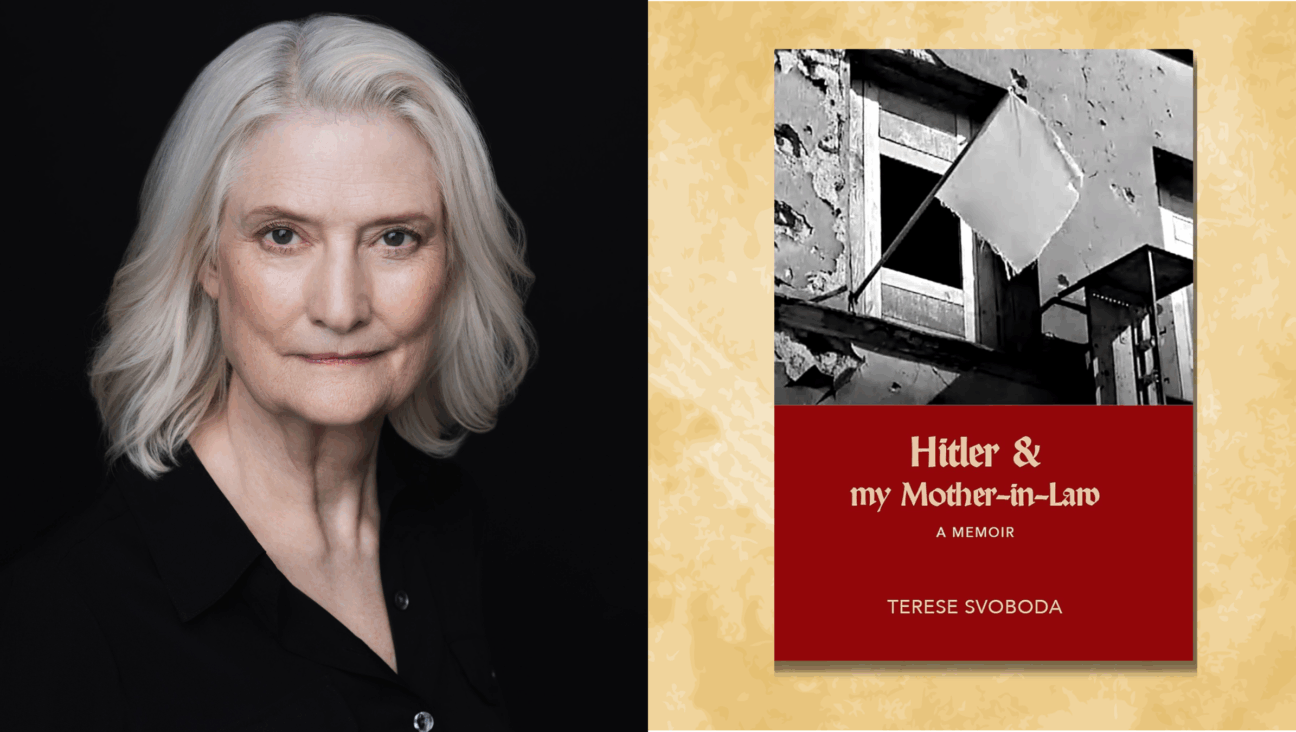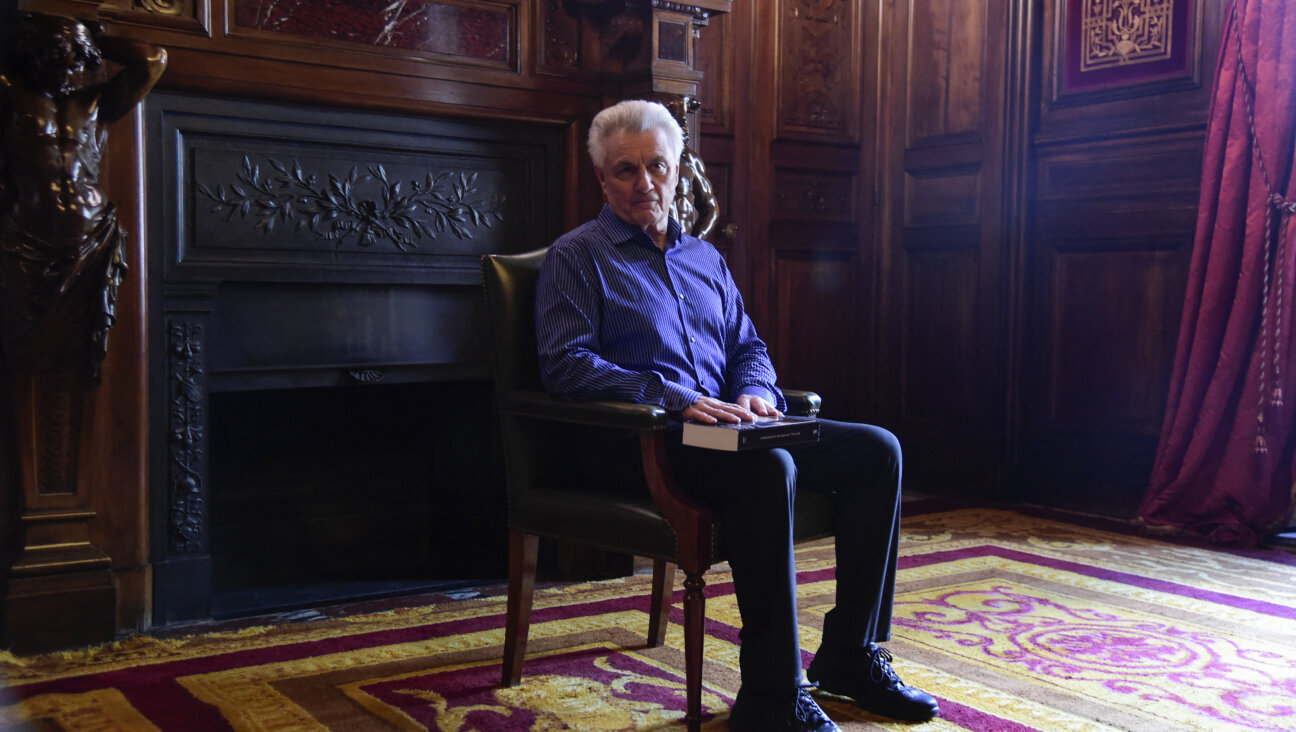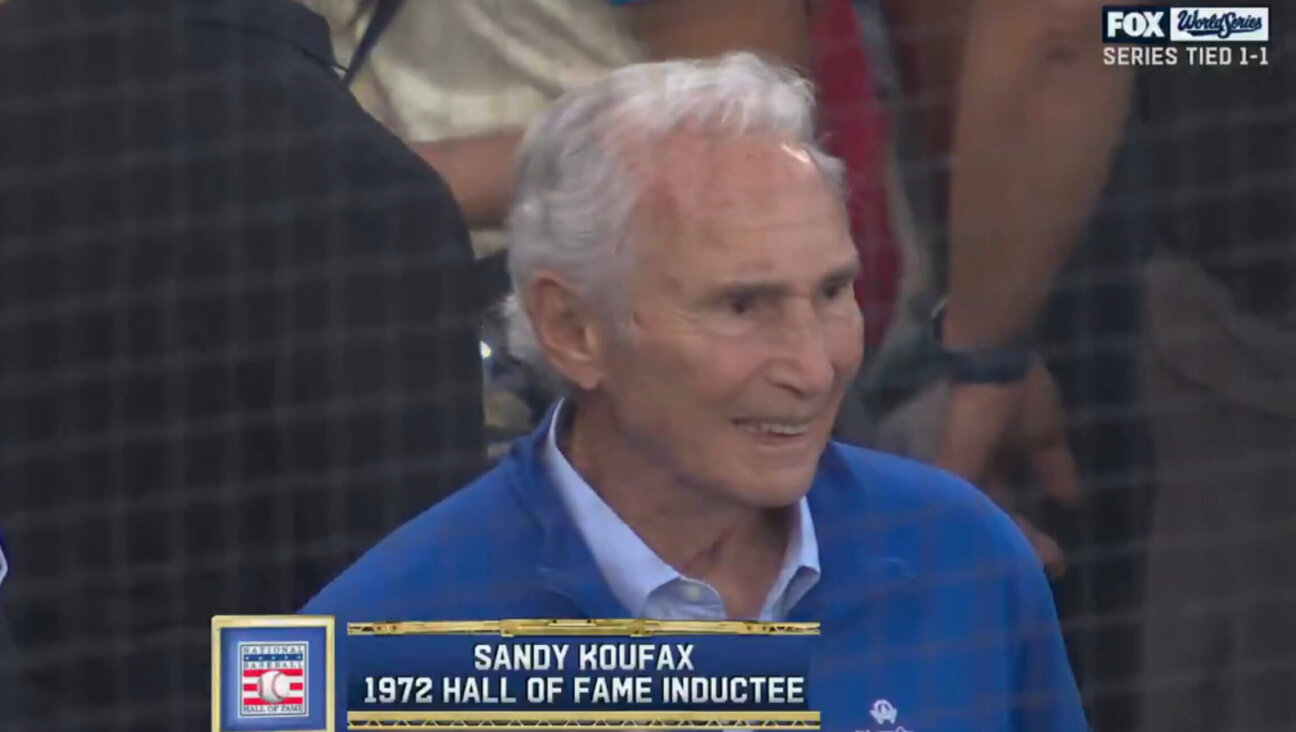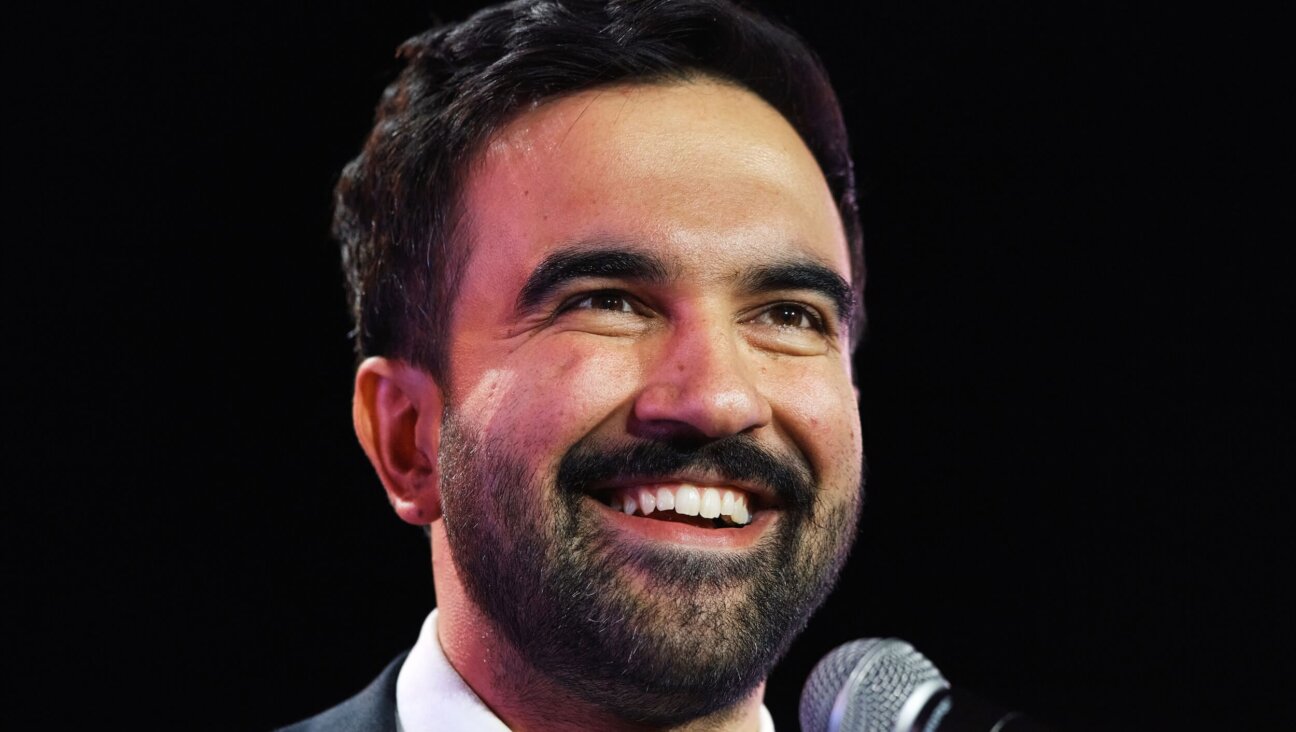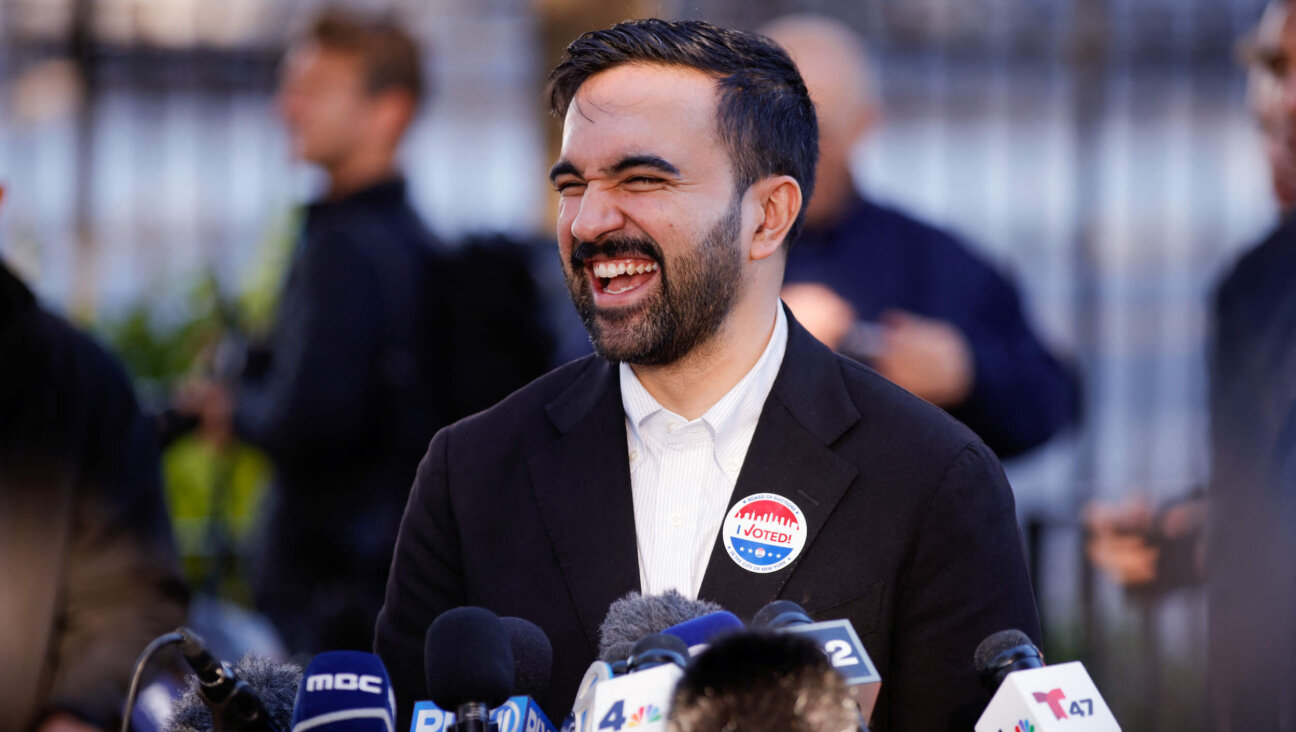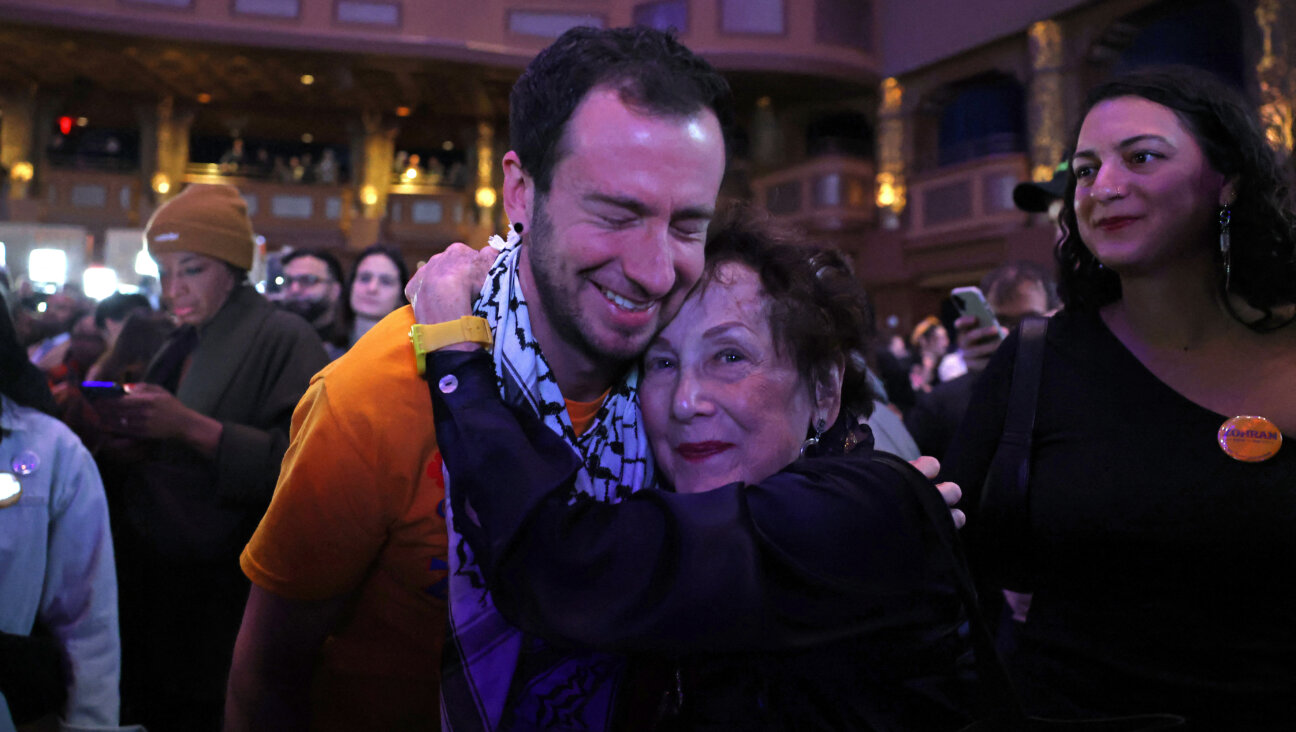Latin Chutzpah

Graphic by Angelie Zaslavsky
Tito Puente never had a bar mitzvah, but if he did, the celebration might have looked a little like the scene outside Lincoln Center on August 23, during the grand finale of the center’s summer Out of Doors festival.
Despite the rain, the final concert of the series attracted a mixed group, as Arturo O’Farrill and His Afro-Cuban Sextet took to the stage at Damrosch Park Bandshell to perform the 1961 album “Mazel Tov, Mis Amigos”, a collection of Yiddish songs reinterpreted through Latin music, in its entirety.
The album, which was originally recorded by Grammy-award-winning musician Ray Barretto, along with jazz greats Clark Terry and Doc Cheatham and salsa legend Charlie Palmieri, among others, was re-released August 11 by the Idelsohn Society, an organization committed to preserving and restoring forgotten American Jewish pop music.
With help from several renowned jazz and Latin musicians, the Cuban Sextet put on a spectacular re-creation of the original recording while adding its own unique flavor and style.
On “Beltz, Mein Shtetele Beltz,” composer and pianist O’Farrill set the mood, leading the way on an improvised version of the album’s opening track, while the diverse crowd, made up of multigenerational Jews and Hispanics, danced away to the horn-laden, up-tempo pachanga, a Latin music style made up of energetic, syncopated rhythms (the word pachanga literally means “lively party” in Spanish).
Aaron Johnson of the Antibalas Horns and Gary Valente of the Afro-Cuban Sextet upped the ante on “Die Greene Koseene,” as both musicians switched off with their own hair-raising trombone solos, while Jeremiah Lockwood of The Sway Machinery provided crisp guitar playing and lead vocals.
For the 1922 Yiddish classic “Yossel, Yossel” –– covered by the Andrews Sisters as “Joseph! Joseph!” in 1938 –– Sandra Velasquez, lead singer of the Latin folk group Pistolera, stepped up and put her own spin on the tune she sang as “José, José.”
The highlight of the night occurred when 94-year-old piano legend Irving Fields came out to play a medley of Jewish classics, including a cha-cha version of everybody’s favorite, “Havah Nagilah.” Fields, who is perhaps best known for his 1959 album “Bagels and Bongos,” banged away on the piano as the crowd began dancing in the aisles, holding hands and singing along.
The sextet finished off the evening with the same energy it had exhibited throughout the night, as the group was joined onstage by salsa legend Larry Harlow (who played earlier on “Papirossen” and “Freilach a Nacht”), Jewish klezmer great Michael Alpert (who had contributed vocals and accordion playing throughout the performance) and Velasquez for the album’s closing number, “Bei Mir Bist du Shein.”
Although Puente is no longer with us, he would’ve been proud of the showmanship and energy of Arturo O’Farrill and the Afro-Cuban Sextet, and of the extensive number of guest musicians, that helped make the re-creation of “Mazel Tov, Mis Amigos” possible. Forty-eight years after its release, Jewish-Latin fusion finally got its aliyah!
Alex Suskind is a frequent contributor to the Forward.

